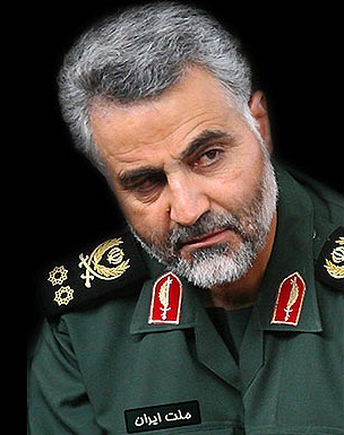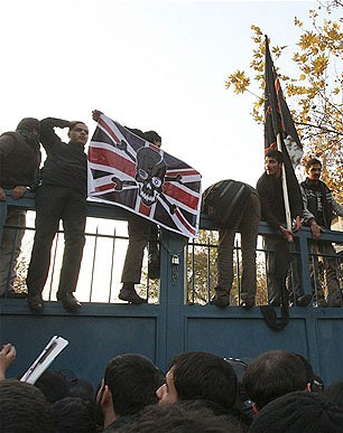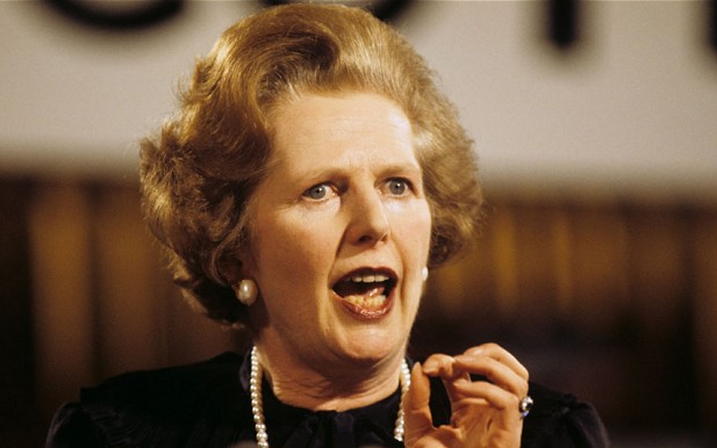Christopher Booker examines the influence of the Quds Force in the battle against Isil and Assad; and a Jungian theory about Margaret Thatcher.
In all the coverage given to unravelling who is for or against whom in the unspeakable shambles of Syria, one key bit of the jigsaw too often gets forgotten. We know Russia is pro-Assad but anti-Isil and other assorted Syrian rebels. Turkey is anti-Assad and Isil, but also Russia and the Kurds. The Kurds are anti-Assad, Isil and Turkey. The US-led coalition is anti-Isil but pro the Kurds, Turkey and the other Syrian rebels.
The other crucial player too easily overlooked, however, is that major power in the region without whose military support Assad would long ago have vanished: the dictatorship run by the Shia mullahs in Tehran. Ever since his country fell apart, Assad’s main support has been the Quds Force, the extra-territorial arm of the Iranian Revolutionary Guards Corps.
For years it has been fomenting terror across the Middle East, from Lebanon to Afghanistan and not least in Iraq, where its backing for Shia militias posed the most deadly threat to US and British forces throughout their post-2003 occupation.
At the forefront of the fighting since Assad’s army crumbled has been the Quds Force, led by some of its most senior officers, along with 25,000 of the Hizbollah allies they support in Lebanon and paid mercenaries from Afghanistan and Pakistan. Their main target, as in the ongoing battle for Aleppo, has not been Isil but those other Syrian rebels.
But in recent months, as we learn from the well-informed National Council of Resistance of Iran (NCRI), the main group working in and outside Iran to replace the tyranny in Tehran with a secular, democratic government, the Quds Force in Syria has taken a very serious hit. Many of its senior officers, including its commander, Brigadier-General Hossein Hamedani, have been killed – and even the Force’s overall commander, Qassem Suleiman, has reportedly been injured.
The NCRI is adamant that Syria cannot return to peace until Assad is ousted. The Western allies claim that this can only be done by the “Free Syrian Army”. But they have to equivocate over the “Free Syrians’” chief enemy, Iran, because they were so bucked by the recent pledge of Iran’s “moderate” President Rouhani that his country would no longer pursue its plans to build nuclear weapons: a deal by which the NCRI (which first alerted the West to Iran’s nuclear plans in 2002) claims the West was hoodwinked. Nor can we afford to risk further conflict with Assad’s other main ally, Russia. So we continue just to bomb Isil, while the Syrian people continue to endure the most terrifying and dangerous tragedy of our time.
The recent 25th anniversary of Margaret Thatcher’s downfall reminded me of a remarkable political prophecy. Not long after Mrs Thatcher became prime minister in 1979, I dined with a distinguished Jungian psychoanalyst, Dr Anthony Stevens.
We were discussing what a good example the “Iron Lady” was of what Jung termed the animus, that “masculine” element in the female psyche which can give a woman the strength of mind and character to make her a true leader. Already people were speaking of her as “the only man in the Cabinet”.
“She is so dominant,” Stevens predicted, “that for a good time to come she will carry all before her. But gradually her style of leadership will build up such resentment in those weak men around her that they will eventually gang up to get rid of her.”No one better exemplified what he was talking about than Geoffrey Howe, whose feline resignation speech 11 years later triggered the flood of resentment which brought her down. The “weak men” had won. The Tory party had lost its last truly “manly” leader. We live with its aftermath to this day.
Source http://www.telegraph.co.uk/comment/12035417/The-real-shadow-over-Syria-is-cast-by-the-mullahs-of-Iran.html




 RSS Feed
RSS Feed